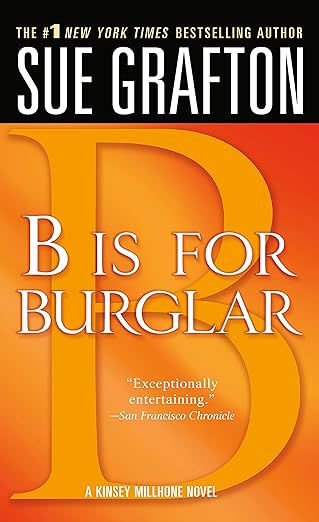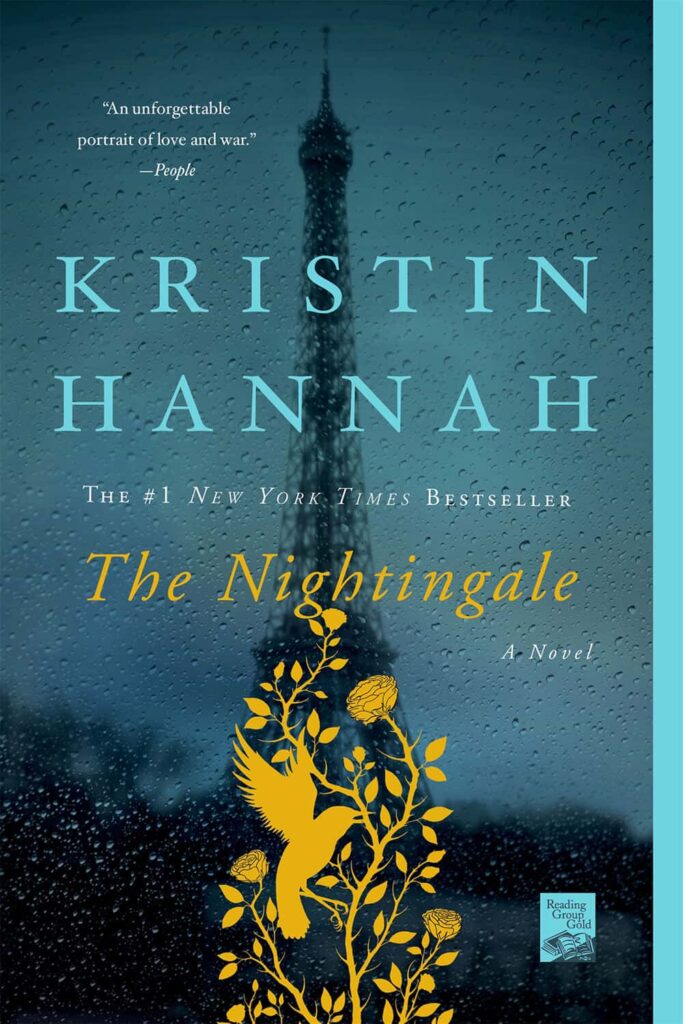
September Book Reviews 2023
I was dreading this post a little this month, because I really didn’t think I’d read more than a book or two. I spent most of September editing in every spare moment I had, and that left little time for reading. As I sat down to look through my book notes to check what I’d borrowed from the library, I realized I’d read more than I’d realized.
Note: I want to warn you in advance that I’ve included spoilers for one title. I’ve marked in bold where you should stop reading, and start again, if you haven’t read the book and don’t want the ending spoiled.

Lost & Found by Carolyn Pankhurst — I heard about this story via a book blog, and the synopsis they gave piqued my curiosity. A tv network selected a motley group of people to take part in a game show where they hunt for clues, collect bizarre items, keep a parrot alive, all while traveling to new cities. It’s a more comical version of The Amazing Race.
The story starts out with Laura, the mother of a teenager who is on the game show. Laura’s hope is that, regardless of winning, she can reconnect with her daughter. Her daughter’s hope is that her mother will accept her for who she is and take an active part in her life. After all, Cassie was pregnant and gave birth at home, and her mother didn’t know until Cassie came to get her in the middle of the night. Both are still struggling with having given the baby up for adoption.
There are other contestants, and each takes their turn in the spotlight, while the show attempts to unravel them. Destroying their inner secrets and purposefully putting up temptations to lure them astray. There are brothers who’ve always done everything together. A couple who are supposed to be reformed from whatever made them “feel” gay. Two former child tv stars. One by one, contestants and teams are picked off until only one team remains.
It’s not a book I’m likely to reread, but like all books, there’s one particular line that was so perfect I still think about it from time to time. In this book, it’s where Cassie says to her mother, “You could have noticed.” And Laura knows it’s true. She should have noticed what was going on in her daughter’s life, and now she’s trying to make ammends.

Winter Chill By Joanna Fluke — I’ve read many of Fluke’s mystery books that star the famous Hannah Swenson and her baking abilities. At a writing meet in September a fellow member and I were discussing stories, which led to books, and somehow we came to Fluke’s stories and how Hannah was constantly waffling between two love interests, until a third guy enters the picture. When this mysterious third guy entered the picture, I put my hands up and said, “Whoa, wait, what?” I’m clearly behind in the series.
Thus, while looking for a new book to read, I scanned the Libby App to see what was available. It surprised me to realize the author had written a few thrillers. After much deliberation, I snagged one of them to listen to.
Winter Chill is a big change from the Swenson mystery series. It opens with a father and daughter riding snowmobiles. The day ends in tragedy for the family. The daughter dies, and the accident paralyzed the father from the waist down. The doctor can’t find a reason for the paralysis and says it may be temporary and brought on by shock and/or grief.
Within days of the accident, friends are trying to encourage Mariann, the mother, to go back to work. She’s a second-grade teacher at the local school, and the towensfokl believe (as does the doctor) that returning to normal life would be wiser. This seemed bizarre to me, that people wouldn’t grasp the loss this woman had experienced, and instead tell her she needed to stop grieving and move on. Which she does, only she continues to hand out homework to her daughter, too. And at night she takes it home and “helps” her daughter through the worksheets.
Meanwhile, her husband is stuck in bed, frustrated that he can’t walk. He has dreams where he is walking and wakes up with legs that are sore. The doctor is sure this is a psychological issue, and that given time, Dan will recover. Dan also teaches at the local school, and coaches the hockey team. He takes longer, but eventually returns to his job.
As the book marches forward, another little girl dies, only this time it’s obvious it’s murder. The police chief tries to blow it off as an accident, but the townsfolk aren’t buying into it. Marianne was mysteriously missing for hours when the accident happened, and Dan had a walking dream again. When a third child dies during a sledding accident, the town worries there’s a madman on the loose. And yet again Marianne was missing, and Dan had a walking dream.
Dan suspects things aren’t quite right with his wife after finding out she’s talking to their daughter, believes the other little girls who died are with their daughter and they are all happy. Dan asks two teens to monitor his wife while she’s at school. When Dan approaches the police about the situation, instead of believing him and evaluating the evidence presented, the police chief goes to the doctor and they both believe Dan is insane. They decide to hold a private hearing to have him committed for at least a month. I’m about to give a spoiler. Look away if you want to read this book and do not want to know the ending.
In the end, Dan realizes the police will not deal with his wife, and so he does the unthinkable and writes a letter from his daughter to his wife. Marianne accepts their daughter needs her, and she takes her life, but also Dan’s. Still being paralyzed he’s only capable of crawling halfway to safety before the story cuts off.
End of Spoilers. There is zero closure at the end. It left you wondering who was the murderer. I was so irritated I went hunting for opinions on Goodreads. People have different opinions on who the culprit is – some think it’s the mother, some believe it’s the father, and it frustrated others that the author did not give a clear resolution. If I had to choose, I’d still pick Marianne, and then tap my foot at the author, for not telling me if I’m right.

B Is For Burglar by Sue Grafton — I was burning the candle at both ends, trying to get through those aforementioned edits before September ended, and started this book, but had to return it before I compelted it. Thankfully, the other person plowed through it so fast, I had it back in a couple of days.
Elaine Boldt is missing, and her sister asks Kinsey to find her. It should be a pretty simple job, track her down in Florida. A woman wearing a $12000 mink coat shouldn’t be that hard to find. Except it is. Every trail runs cold, and Kinsey is certain her case is linked to a previous house invasion and arson. She just has to connect the dots to figure out how.
I’ve often wondered about the time frame when Grafton wrote these books. I know when I first read them, okay fine, listened to them while walking on a treadmill when my twenty-two-year-old was only a few months old and taking his afternoon naps, the books didn’t seem out of place. But as I reread them now in a world full of modern technology, I’m often curious about the original publication dates. After all, our very slim phonebook arrived recently, and it shocked my kids that anyone would waste time with such a book when you could just look it up online.
While I’ve yet to pull our physical copies off the bookshelf to check origional publication dates, I did laugh myself silly when Kinsey went to a fast-food joint and paid $1.65 for a hamburger, fries, and coke.

The Nightingale by Kristin Hannah — A while back, a fellow writer in my local group ran a chapter I’d written through ChatGPT to see if it could decide what published authors my writing most resembled. It spat out a few people, and Kristin Hannah was one authors. I had one of her books on hold at the library, and when it came in I was intrigued to read it for more reasons than normal
Now, I confess I read a bunch of WWII books a while back, but I find it’s a topic you often have to prepare yourself for. Reading about hard times, while enduring hard times, can heap difficult upon difficult. And since this book took place in occupied France, I knew I was in for an emotional read.
This book spans the lives of two sisters who endured a rough upbringing. Their mother died when they were young, and their father, already tarnished by WWI, did not feel capable of raising his daughters. He packed them off to a boarding house where the woman treated them poorly. Both girls grow up wanting to be loved and accepted. One finds that in the arms of another man and marries him. The younger, while desiring it, also rejects love because it has so often caused her nothing but misery and heartbreak.
When WWII starts, Isabella is determined not to sit around cowering, but to help however she can. She returns to Paris to live with her father’s, but when bombs fall, she’s packed off to the country to live with her older sister. Angered by her father’s rejection she goes unwillingly. And when Nazi’s drop bombs on innocent people while they are attempting to evacuate Paris, it rekindles her desire to help the war efforts.
Vianne lives a peaceful life in the country where war has not reached yet, and she wants nothing to do with her sister’s desire to fight for France. All she wants is to keep her daughter safe and wait for her husband’s return. What Isabelle can’t seem to make Vianne understand is that war is coming regardless of what the radio tells them.
Both sisters have to make hard choices in the years that follow. Choosing what is right over what is legal. Choosing what they can live with, regardless of the consequences to themselves and their loves ones. Doing whatever one can to survive becomes a way of life in war torn France.

I heard an author interview recently where they asked an author if she’d read any good books lately. The author sighed and said, “Oh I wish I had!” There was a dramatic pause where the interviewer seemed lost for words, and the author filled the empty air time by saying, “The problem is, when I sit down to read I’m always dissecting the other person’s work. I’m looking to see how they wove the story together, how they played with words. It all becomes work. I’d love a good book where I get lost. That would be amazing.”
It made me chuckle, because as I’d been listening to the book, I was dissecting the author’s work. I hunted for the stages of her story, checking point of view, and paid close attention to her clever way of holding back just enough from the reader to keep the mystery and suspense going. I do this a lot when I’m reading.
Recently I’ve been collecting a single sentence from each book that stood out the most to me. Such as the sentence, “You could have asked.” From Lost & Found. Or, “The day before yesterday I killed someone….” Which is part of an opening line to Grafton’s A is for Alibi.
But every now and again I’ll get so caught up in the imagery the author has painted that I visualize so well what’s written. I stop analyzing the story and counting how many adverbs I spotted. I stop rearranging words in sentences, and I get lost in the story.
At the end of The Nightingale, there are two haunting scenes, but one in particular that, even as I write this, I see in my mind. I can’t tell you what it is without spoiling some secrets the book has stored away. It’s a story that will stick with me long after I’ve returned it to the shelf, and not because of all the little secrets I gleamed, but because of that one haunting image.
The Light Between The Oceans is another book that had such an effect on me. I despised the author for months after reading it. I despised her again when Hollywood took over our little island. They dismantled and remade a small costal town where part of the movie adaptation was filmed.
It was one of those books where there could be no true happy ending. Where lives were upending, dismantled, carefully glued back together, only to be undone by a single silver rattle. If you’ve read the book, perhaps you understand what I’m referring to. And if not, the reader part of me suggests you never read the heart-wrenching story, while the writer half of me says you will never read anything so beautifully crafted to bring about such deep gut-wrenching sorrow.
Lest you ask, no I never seen the movie, not even knowing they filmed it on our little Island. Yes, I’ve been to the small costal town. I’ve walked the streets, been to the gorgeous historical house, and climbed the extinct volcano. Visited the nearby lighthouse and wondered at the sorrow of the real-life parents who buried their children there. But bring myself to watch the movie? No, I’m not sure I could handle that.
